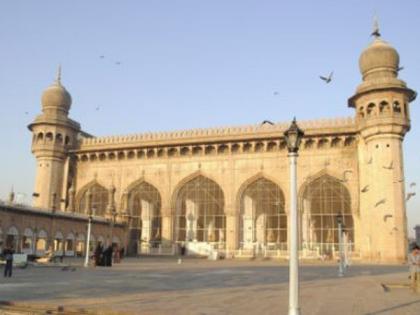Lockdown : Ulemas, Muftis appeal for offering Ramzan prayers at home
By ANI | Published: April 17, 2020 06:01 AM2020-04-17T06:01:46+5:302020-04-17T06:10:02+5:30
Ulemas and Muftis from all schools of Islamic thoughts have appealed Muslim community to offer Taraveeh prayers at their homes, instead of going to the mosques, during the holy month of Ramzan while the nationwide lockdown imposed to prevent the further spread of COVID-19 is in place.

Lockdown : Ulemas, Muftis appeal for offering Ramzan prayers at home
According to a press note of Jamia Nizamia, the Ulemas and Muftis have also urged people of the community to "partake Iftar at homes.. and not to host Iftar parties."
They have instead appealed to the people to donate the money saved through this to the underprivileged section of the society.
"Further, the Ulemas and Muftis have appealed to the people to follow the instructions given by the government to observe the lockdown. They should also follow the advice of health and medical experts and observe preventive measures, especially social distancing, strictly," the note read.
They have also been asked to refrain from holding gatherings for Taraveeh and recitation of the Holy Quran.
Earlier on Monday, the Islamic Centre of India had also issued an advisory asking Muslims to adhere to the lockdown rules during the holy month of Ramzan.
The holy month of Ramzan, is likely to commence from April 24 or April 25, subject to sighting of the crescent moon.
During the month of Ramzan, the devout observe rigorous fasting for about 30 days and do not consume food or water from dawn to dusk. They eat Sehri (a pre-dawn meal) and break their day-long fast with Iftar in the evening.
( With inputs from ANI )
Open in app